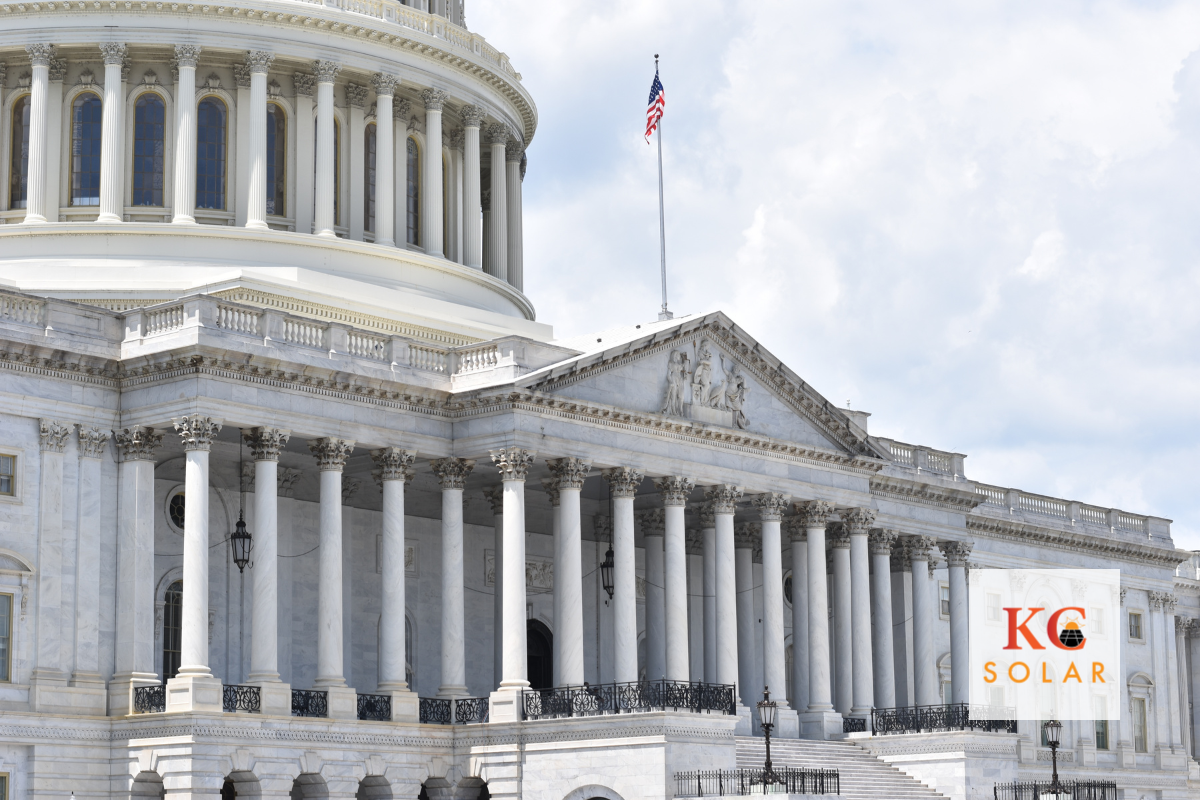While it wasn’t easy, we’ve made it to 2021. And 2020 is likely a year most of us would prefer to forget. It was a year full of uncertainty and sacrifices in the wake of the pandemic, all topped off with a tense election in the last few months. Whether or not you feel that 2021 is off to a better start, there’s one piece of information that’s getting us excited for the year ahead. And it involves solar tax breaks.
Of course, many people know the benefits of solar energy. But it’s not surprising that the financial implications can sometimes be enough to scare people away. While solar energy often provides a large return on investment for many years into the future, making that initial investment can be a big decision.
The extension of existing solar tax breaks may make that decision easier for many. Keep reading to learn more about what it all means.
About the New Change
The federal Investment Tax Credit (ITC) is a way for homeowners and businesses to save on the costs of residential and commercial solar. This federal credit was originally established through the Energy Policy Act of 2005. And it was designed to last only through the end of 2007. However, Congress has extended it multiple times since then.
Throughout 2016-2019, the tax credit amount was 30% of the cost of the system. In 2020, the tax credit decreased to 26%. In 2021, it was set to decrease further to 22%, before expiring entirely in 2022 and beyond for residential solar; commercial solar would continue to receive a 10% credit.
However, at the end of 2020, the solar Investment Tax Credit was officially extended once again. On December 21, Congress passed the extension as part of the omnibus COVID relief/spending package, and President Trump signed it all into law on December 27.
Under the new Investment Tax Credit, customers looking to go solar can continue to claim a 26% tax credit on residential and commercial solar. Not only through December 31, 2021, but all the way until the end of 2022. In 2023, the tax break amount will drop to 22%, and in 2024 and beyond, only commercial solar is eligible for a 10% credit, while residential systems will no longer qualify.
Update: With the passage of the 2022 Inflation Reduction Act, the tax credit changed to 30% through 2032. Which means there’s still time to install solar panels in Kansas City and start saving.
How Do Solar Tax Credits Work?
Solar tax credits are one of the best ways to save money on your solar system, whether it’s for your home or business. First of all, regardless of which state you live in, you’re automatically eligible for the solar tax breaks if you’re a U.S. taxpayer.
Basically, a tax break or tax credit is an amount of money that taxpayers are able to subtract from their yearly income taxes. In the case of the ITC, that 26% tax credit means that solar customers are able to subtract 26% of the cost of their solar system from their income taxes for that tax year.
Here’s an example:
If your solar system cost you $10,000 to install in 2021, you would then receive $2,600 back from the government when you file your federal taxes for that tax year. So, when you file 2021 taxes in the first four months of 2022. Say owe the IRS $2,600 in taxes, you would then owe $0.
If it cost you more, you would save more; if it cost you less, you would save less. It just depends on whatever 26% of your system cost is.
If you owe the IRS less than the amount of your tax credit, then you’d roll over that remaining credit into following tax years, as long as the tax credit is still in effect. So, if you only owed the IRS $1,000 in taxes, then $1,600 would roll over for the following year.
The extension of the solar ITC is great news for all of us in the solar industry, as well as any potential future solar customers. Of course, there’s a chance that the tax breaks will continue to be extended in years past 2023. But it’s likely better not to take the risk.
Other Ways to Save on Solar
While the solar ITC can be a huge help in financing the cost of solar energy, many customers are interested in saving even more money on the cost of their solar panels and installation. (Surprising, right?)
One other way — though it’s not necessarily available to everyone, like the federal ITC — is through local/state rebate programs. Solar rebates are one-time payments that help finance solar installation and can help decrease the amount of time needed to see the return on investment.
Unfortunately for our Kansas customers, Kansas doesn’t offer any rebates at this time. But in Missouri, Senate Bill 564 mandates that electric corporations make solar rebates available for systems that become operational through December 31, 2023.
Under these guidelines, a 25-cent per watt ($0.25/W) rebate is available for solar systems that became operational after June 30, 2019 and new systems that are installed through December 31, 2023.
Also, for all KC Solar customers, we offer $0 down solar loans. If you can qualify for a loan — and we have several options, even for low credit scores — then you don’t need to have the money today. We’re happy to work with you and get your solar system up and running.
Your Solar Partner for 2021 and Beyond
If you are looking for the best solar company in Kansas City, look no further than KC Solar. They are your local Kansas City solar panel installation experts. Once you schedule a no-pressure site visit, our experts will help you understand what solar system specifications would be best for your home or business.
KC Solar is the only local solar company in Kansas City with KC natives who own and operate the daily activities of the business. What does that mean for you? We care about you because we care about this city, and we only want the best for it.
And be sure to download our Free Solar Panel Buying Guide for more information.
We look forward to serving you!





